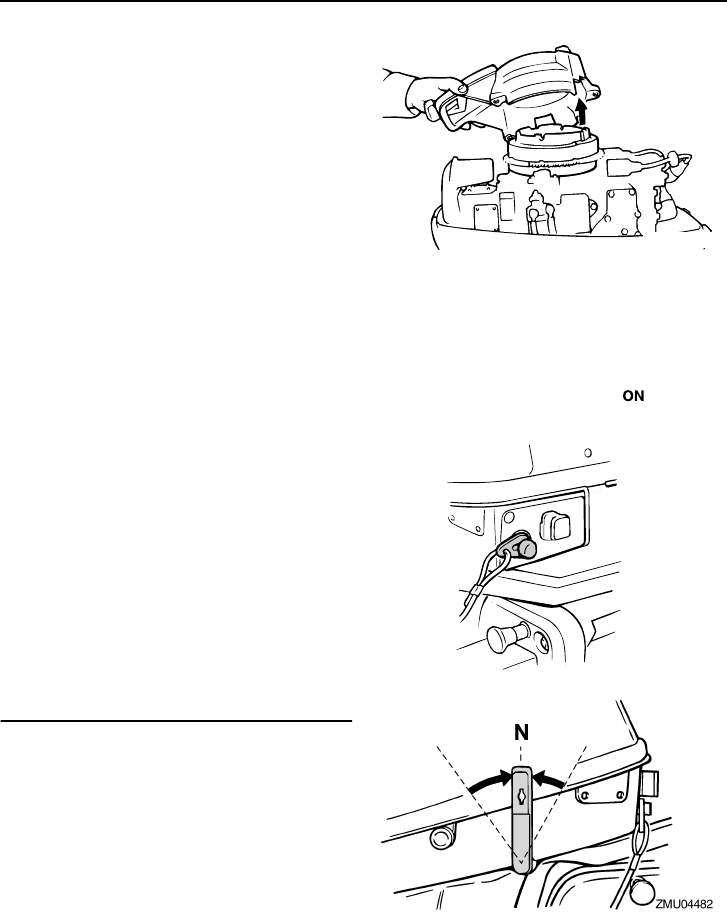
Trouble Recovery
49
your arm or leg while operating.
●
Do not attach the lanyard to clothing
that could tear loose. Do not route the
cord where it could become entangled,
preventing it from functioning.
●
Avoid accidentally pulling the lanyard
during normal operation. Loss of en-
gine power means the loss of most
steering control. Also, without engine
power, the boat could slow rapidly. This
could cause people and objects in the
boat to be thrown forward.
●
Be sure no one is standing behind you
when pulling the starter rope. It could
whip behind you and injure someone.
●
An unguarded, rotating flywheel is very
dangerous. Keep loose clothing and
other objects away when starting the
engine. Use the emergency starter rope
only as instructed. Do not touch the fly-
wheel or other moving parts when the
engine is running. Do not install the
starter mechanism or top cowling after
the engine is running.
●
Do not touch the ignition coil, spark
plug wire, spark plug cap, or other elec-
trical components when starting or op-
erating the motor. You could get an
electrical shock.
EMU29561
Emergency starting engine
1. Remove the top cowling.
2. Remove the start-in-gear protection ca-
ble from the starter, if equipped.
3. Remove the starter/flywheel cover after
removing the bolt(s).
4. Prepare the engine for starting. For fur-
ther information, see page 21. Be sure
the engine is in neutral and that the en-
gine stop switch lanyard lock plate is at-
tached to the engine stop switch. The
main switch must be “” (on), if
equipped.
5. If equipped the choke knob, pull out it
when the engine is cold. After the engine
starts, gradually return the choke knob
to its home position as the engine warms
ZMU02883
ZMU02884


















